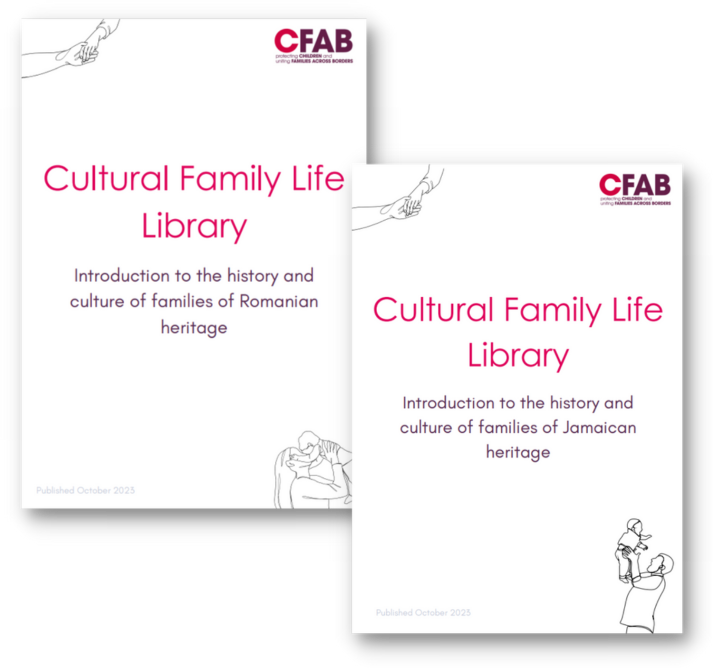
Preventing failure: why social work must move beyond cultural humility
Post-Brexit, the UK witnessed a significant rise in immigration. In the 12 months prior to September 2023, it received 75,340 asylum applications, more than double the peak of 32,733 in the so-called ‘European refugee crisis’. With such levels of inward migration, understanding diverse cultures and family norms is crucial.
Multiculturalism or assimilation?
The UK hosts nearly two hundred different nationalities; nearly one in three children in England and Wales have a foreign-born parent. The narrative around cultural diversity has been divisive over the last ten years, prompting the former UK Home Secretary, Suella Braverman, to declare
There is another side to the story: Some ‘multicultural’ families haven’t been ‘allowed’ to lead parallel lives but rather forcibly alienated from some of our systems - the very systems meant to support them, particularly when they are in crisis, and help with integration.
The Early Intervention Foundation's research has identified two key barriers that stop effective support for ethnic minority children and families; services lacking representation of the communities they serve, and practitioners' interactions lacking cultural sensitivity and understanding of the impact of cultural and religious influences on family dynamics.
What Works Centre for Children’s Social Care found that nearly a third of social workers witnessed racism towards families or service users by colleagues or managers. In other words, professionals meant to bring social justice to the disadvantaged and vulnerable of society are sometimes discriminating (consciously or unconsciously) against them. Earlier research from the Department for Education has suggested that anxieties about discussing race, and ideas embedded in cultural traditions, often present obstacles for social workers to engage with Black and ethnic minority families.
Neglecting multiculturalism results in racism and fails children’s duty of care
Some would argue that the true failure of ‘multiculturalism’ lies in its one-way expectation: non-native families assimilating to the native culture, neglecting a shared understanding of diverse cultures. While individuals' efforts to understand each other may vary based on age, political and religious views, a non-negotiable area for shared understanding should be in child protection and family support services.
Not only is there an ethical imperative for social workers to proactively understand the culture and history of the families with whom they work, there are legal and professional requirements as well as held in the Children Act 1989, the Working Together to Safeguard Children (2018) framework, and Social Work England’s Professional Standards.
Despite the clear requirements to respect family structures and cultures, coupled with the Children Act 1989 requirement that extended family should be the first option explored when a child is deprived of parental care, very few professionals will consider close family members overseas. In fact, less than 0.04% of children in care are reunited with family overseas. This failure to uphold children's rights contradicts the United Nations Convention on the Rights of the Child. It also contradicts the UK's multicultural reality.
Assessing the safety and needs of children is a difficult task – and one that is made more complicated by different cultures and family practices. The difficulty of determining a child’s best interest across different cultural norms is more fully explored in the article “Applying Universal Principles of ‘Best Interest’: Practice Challenges across Transnational Jurisdictions, Cultural Norms, and Values” (2023).
Using multiculturalism as a strength to support families to stay together
Where do concepts of ‘family life’ differ across cultures and when does this affect social work practice? Below are a few examples of more culturally sensitive ways to positively engage families.
Timing of family visits
This could start with researching what traditions (holidays) or practices (routines) are important to a family and not to disrupt those where possible. It would be helpful to demonstrate proactive respect for cultural norms, like following specific greetings or customs (i.e. removal of shoes), to show positive engagement with their culture when visiting their home.
Engaging children
The social worker meets with the parents first to establish rapport and to explain the purpose of their engagement. This could allay parental fears about authority and may also help to reassure children.
Understanding sleeping arrangements
A culturally sensitive approach to assessing co-sleeping involves considering bed size or mattress type (traditional rolled Japanese futon or Western box-spring), family’s duration in England and their assimilation to English culture. This practice could potentially strengthen child-parent attachment.
Moreover, it's crucial to understand diverse cultures to identify genuine risks and prevent cultural misunderstandings, and avoid unnecessary interventions from social services.
Strengths-based solutions exist for professionals navigating new cultures and family structures, but more are needed
While there is both guidance and legislation that social workers must give due regard to diversity/ culture, there are surprisingly few tools available to social workers to help them understand cultures different to their own, let alone build on strengths that may be inherent to an ethnicity or culture. In December 2023, Children and Families Across Borders (CFAB) launched its Cultural Family Life Library, which offers introductory guides for social workers supporting families with heritage from Romania and Jamaica. Resources likes this help provide social workers with these necessary tools.
Cultures, like families, are diverse and complex. Adding complexity to a heavy caseload is never ideal, however social workers will achieve better outcomes for children – and more productive engagement with families – if building a deeper understanding of foreign culture is prioritised. There are a growing number of resources available and, where possible, social workers should share their own learnings in public to assist others in becoming more culturally aware.
Carolyn Housman, CEO, Children and Families Across Borders.
Michael Nwoye, Inter-country Social Worker, Children and Families Across Borders.
